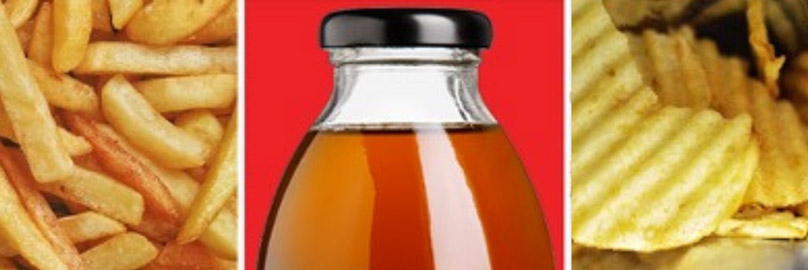They may look tempting, but they are packed with unhealthy levels of sugars, fats, and salt.
While it is more and more challenging to avoid high sodium, deep fried, sugary drinks, saturated fats as much as possible at any age, it is especially critical in the later stages of life.
Here are the biggest culprits to challenge your health:
- Fried foods that triple the calories
If it helps, pause to imagine the vat of oil that basket of fries or onion rings has been submerged in, and consider how its saturated fat “may have a negative impact on blood cholesterol,” says Amy Gorin, a plant-based dietitian and owner of Plant Based With Amy in Stamford, Connecticut.
Bottom line: Get the side salad instead of restaurant fries. , “Go with grilled, not fried.”
And when you’re looking at labels, consider that “a 200-calorie serving of food should have no more than 2 grams of saturated fat,” says Nancy Farrell Allen, a spokesperson for the Academy of Nutrition and Dietetics. Do something nice for yourself, invest in an air fryer. Also many new models convection oven have an air fryer mode
- Sugary drinks, including most bottled teas
Soft drinks aren’t your only enemy. Bottled teas, fancy coffee drinks and “fresh” lemonades can all be loaded with the sweet stuff. “For example, the 16-ounce chai latte at Starbucks, one of its most popular drinks, has 42 grams of sugar,” Christine Rosenbloom, a registered dietitian and nutritionist says. Beware of products labeled with “organic sugar, coconut sugar or raw sugar. Sugar is Sugar.
Bottom line: “Aim to keep added sugar intake to 10 percent or less of total daily calories,” . For a 2,000-calorie daily diet, that would be no more than 200 calories, or 50 grams, of added sugar per day.”
- High-sodium instant meals (think frozen pizzas)
“Seventy-five percent of the salt in our diet comes from processed foods, not the saltshaker,” Rosenbloom says. So what can you do? An easy way to spot low-sodium foods, she notes, is to look for those in which sodium is 5 percent or less of the daily value; anything in the 20 percent range is a high-sodium food.
Bottom line: Aim for 1,500 to 2,300 milligrams of sodium per day
- Ultra-processed snacks
It’s the ultra-processed foods that make the list to strike from your diet. “Minimally processed foods like bagged greens, diced vegetables and nuts offer convenience,” Allen says. “And canned tomatoes and frozen fruit and vegetables are an excellent way to enjoy produce processed at peak quality and freshness.”
But many ready-to-eat, processed foods like cake mixes, snack chips, ketchup, sweetened yogurt and “meat lovers” frozen pizzas add food coloring, sodium, preservatives and other hard-to-pronounce additives to make consumers happy. And that’s not good for you.
Bottom line: Make label-reading a habit. Better yet, prepare your meals at home.
- Alcohol
The days of triple-margarita Mexican dinners should be behind you. Why? “Alcohol metabolism changes when we age, and we become more susceptible to its negative aspects,” says Thomas Loepfe, M.D., a geriatrician at the Mayo Clinic. “Alcohol can impact fall risk, interact with the medications we take as we age, and lead to an increased risk of dehydration. Alcohol contributes to many health problems, including liver disease, heart disease, kidney disease, our immune system function, and neurological diseases like dementia.”
And if you think alcohol helps you get more or better sleep, think again. “While it may make it easier for us to fall asleep, it doesn’t usually help us stay asleep,” says Allen. “Frequently it wakes us up in the middle of the night to visit the bathroom.”
Bottom line: Current government guidelines recommend no more than two drinks a day for males and no more than one drink a day for females.
Allegiance Home Health offers private caregivers who can assist with meal preparation and healthy living.
Our CNAs and HHAs are trained and will meet the specific needs of each patient.
Call us today for a Complimentary Home Assessment!
561-367-0711
954-973-5505
772-266-8528
Serving Broward, Palm Beach, Martin, St. Lucie, Martin, and Indian River County with offices in Lighthouse Point, Boca Raton, and Stuart, Florida.


